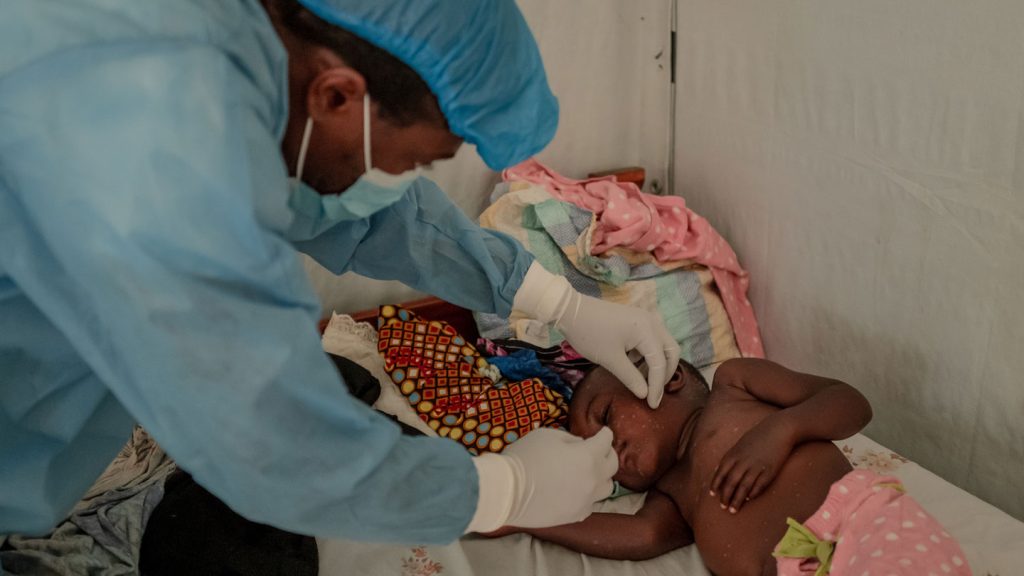Monkeypox, previously known as mpox, has been declared a public health emergency in Congo by the World Health Organization due to an increase in cases. The disease has been a problem in the region since 1970, with most cases occurring sporadically in young children after exposure to infected animals. However, recent cases in Congo have been driven by viruses belonging to a subgroup called clade I, which spread person-to-person. Despite scientists warning about the potential for this outbreak, resources were not allocated to combat the disease, leading to a surge in cases and deaths. Countries including Japan, Spain, and the United States have pledged vaccine donations to help control the outbreak.
Two main groups of viruses causing monkeypox, clade I and clade II, differentiate based on their geographic location and modes of transmission. Researchers have identified two subgroups within clade I, clade Ia and clade Ib, which have been primarily found in Congo. Clade Ia typically affects children who come into contact with infected animals in forests, while clade Ib has shown the ability to spread more easily among people. The emergence of clade Ib in Congo has led to cases spreading to neighboring countries and beyond, with some travel-related cases reported in Sweden and Thailand.
The increased spread of monkeypox is attributed to a decline in immunity following the eradication of smallpox and the discontinuation of vaccinations. Children under the age of 15 have accounted for a significant percentage of confirmed cases in Congo, with outcomes being worse in this age group compared to adults. The specific transmission dynamics of the virus, including how it spreads through close contact and respiratory droplets, are still being studied to understand its wide reach and potential impacts on different populations around the world.
Vaccines are considered essential in controlling the spread of monkeypox, but challenges exist in producing and distributing enough doses to curb the outbreaks. Researchers are working on developing monkeypox-specific vaccines, but these are not yet ready for human testing. Additionally, the effectiveness of existing smallpox vaccines against clade Ib viruses is still being evaluated. Treatment options for monkeypox, including antiviral drugs, are being explored, but their efficacy is uncertain. Behavioral changes and infection prevention measures are also crucial in limiting the transmission of the virus, as seen in efforts during the 2022 outbreak among men who have sex with men.
Overall, addressing the monkeypox outbreak in Congo and other affected regions requires a multifaceted approach that includes vaccination, treatment, behavior changes, and infection control measures. Collaboration among countries and organizations is crucial to support those impacted by the disease and limit its spread. Despite the challenges and uncertainties surrounding monkeypox, continued research and efforts to understand and combat the virus are essential to mitigate its impact on public health.


